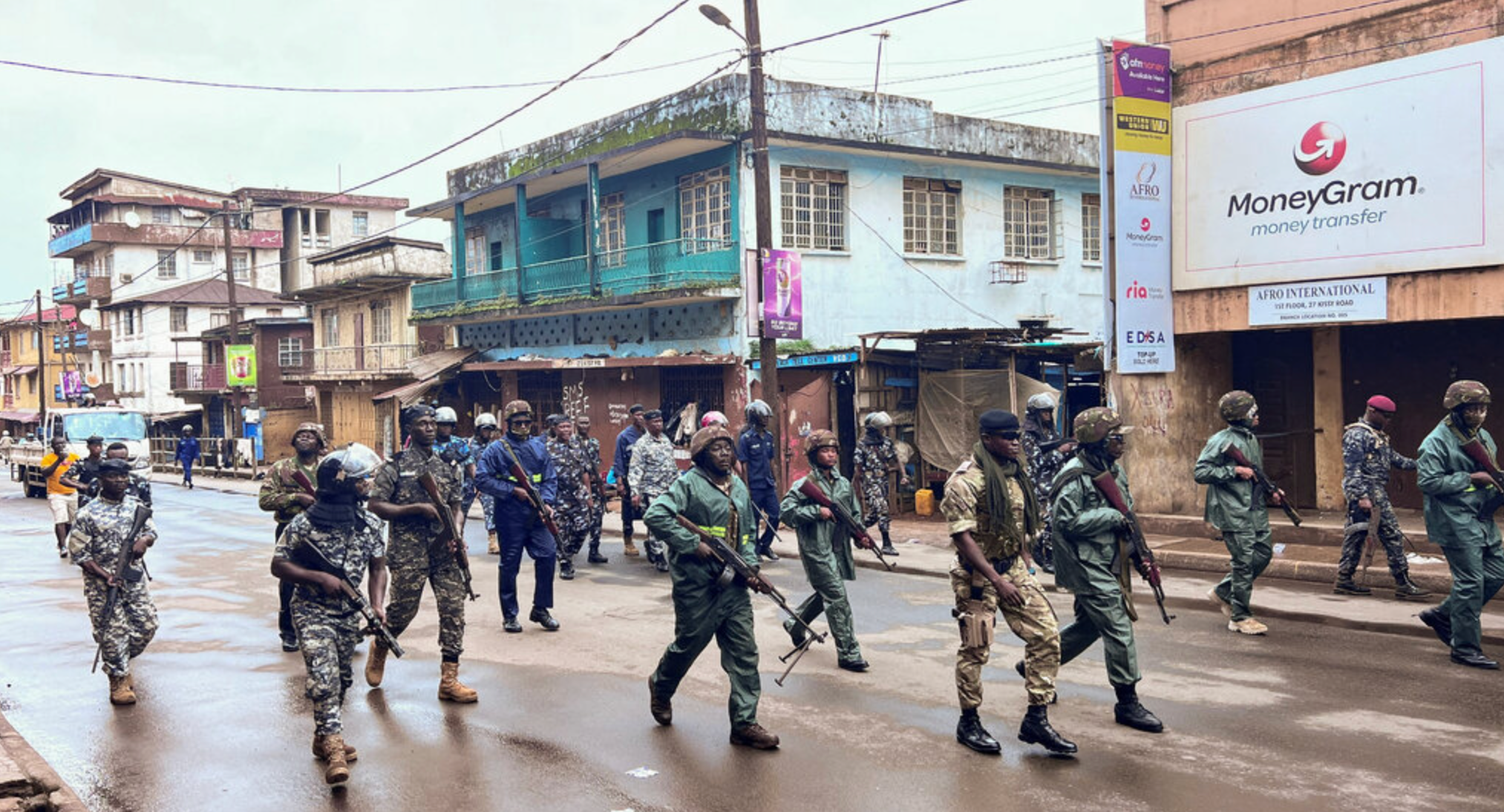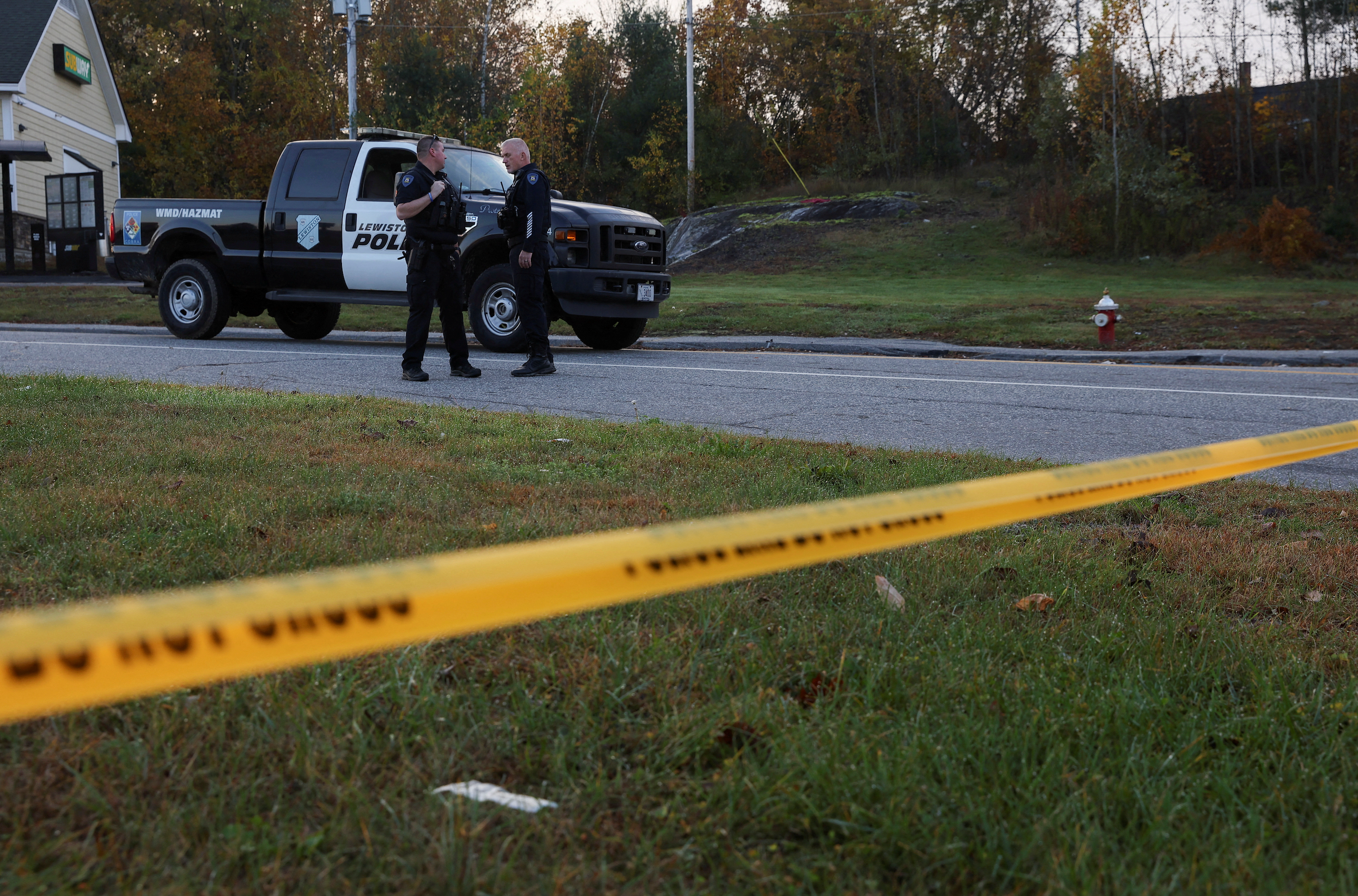
Sierra Leone jails 11 former soldiers, police officers over coup attempt
PHOTO CAPTION: Riot police patrol in Freetown, Sierra Leone during anti-government protests, 2022. (Umaru Fofana/Reuters)
FREETOWN (Reuters) - A high court in Sierra Leone has sentenced 11 people including former soldiers and police officers to long prison terms for their roles in a failed military coup last year.
Gunmen on Nov. 26 attacked military barracks, a prison and other locations in Sierra Leone, freeing about 2,200 inmates and killing more than 20 people.
After the coup bid collapsed, 12 people were charged in January with treason. Late on Monday, 11 were convicted in a unanimous jury verdict on 20 counts including treason, murder and unauthorised use of military uniform.
The other accused person, Bai Mahmoud Bangura from the opposition All People's Congress (APC) party, is being tried separately due to health issues.
Amadu Koita Makalo, a retired army major and former bodyguard to ex-president Ernest Bai Koroma, received several sentences for various counts ranging from 40 to 70 years in prison, to be served concurrently.
One female police officer and one female prison guard were also sentenced. The police officer, Halimatu Hassan Bangura, was given 30 years for harbouring Koita.
The government said the coup bid was led mostly by bodyguards to Koroma, who was later charged with four related offences, before the government decided to let him leave the country on medical grounds.
Koroma condemned the coup attempt and his lawyers called the charges "trumped up" and part of a "political vendetta".
Tensions have risen anew in Sierra Leone, two decades after a 1991-2002 civil war in which more than 50,000 people were killed.
(This story has been corrected to say 'former' soldiers in the headline and paragraph 1; to remove 'twelfth accused' in paragraph 4; to correct to say one female police officer and one female prison guard, rather than two female police officers; and to correct the name of the police officer in paragraph 6)
(Reporting by Umaru Fofana; editing by Anait Miridzhanian, Mark Heinrich and Portia Crowe)









